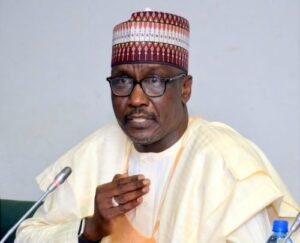

Electricity consumers owe DisCos N348.84bn
Electricity consumers across Nigeria have failed to pay a staggering N348.84 billion of the electricity bills issued to them by the country’s 11 Electricity Distribution Companies (DisCos), according to a recent report.
An analysis of quarterly reports published by the Nigerian Electricity Regulatory Commission (NERC) shows that the N348.84 billion in unpaid bills is part of the total N1.53 trillion that the DisCos billed their customers. Of this, consumers paid N1.18 trillion, leaving an outstanding balance of N348.84 billion.
The breakdown of the unpaid amounts reveals that customers did not pay N77.03 billion of the N368.65 billion they were billed in the first quarter of the year. In the second quarter, they failed to settle N112.48 billion from the N543.64 billion they were charged. The unpaid bills continued to rise in the third quarter, with a further N159.33 billion left unpaid from the N626.02 billion they were billed.
The reports shed light on the ongoing liquidity crisis that has affected the Nigerian Electricity Supply Industry (NESI) since its privatisation in 2013. This crisis has led to trillions of naira in debts across the sector, crippling necessary infrastructure upgrades and weakening the industry’s financial stability.
The federal government, which remains the largest debtor in the sector, continues to subsidise electricity consumption by freezing tariff reviews for the past seven months. Experts have repeatedly called for the introduction of cost-reflective tariffs as a crucial step to reduce the sector’s dependence on government subsidies and ensure its long-term sustainability.
Despite the government approving a tariff increase for the highest electricity consumers in April, it will still need to allocate over N2 trillion in subsidy payments for 2024.
Adetayo Adegbemle, the convener of PowerUpNigeria—an electricity consumer rights advocacy group—has called for the operationalisation of the Power Consumer Assistance Fund (PCAF). Adegbemle pointed out in a statement that the freeze on end-user tariffs, which has been in effect since December 2022, has led to a significant gap between the cost of providing electricity and the rates consumers are being charged. This disparity has resulted in a massive monthly subsidy burden of approximately N262 billion for the federal government.
The freeze on tariffs has led to only 9.5% of invoices from Generation Companies (GenCos) being settled from the market, Adegbemle explained. This, in turn, has caused cash flow shortages that have forced gas suppliers to curtail their supplies, exacerbating the sector’s financial difficulties.
“NERC’s intervention in April 2024 brought temporary relief by unfreezing tariffs for Band A customers—those who are guaranteed 20 hours of electricity supply daily. This adjustment helped increase market payments to 49.5% and reduced the monthly subsidy burden to N153 billion,” Adegbemle noted.
However, he pointed out that resistance to further tariff adjustments and the government’s reluctance to revise rates for lower bands has stalled much-needed progress. If these challenges are not addressed, market payments are projected to decline to 39% by December 2024, with subsidies rising to N200 billion.
Despite these difficulties, Adegbemle remains hopeful that the full implementation of the Power Consumer Assistance Fund (PCAF), which was established under the Electricity Act of 2023, can provide a transformative solution to the liquidity challenges that continue to affect NESI. He believes that the PCAF holds the potential to address some of the fundamental issues facing the sector, allowing it to recover and become financially viable in the long run.




